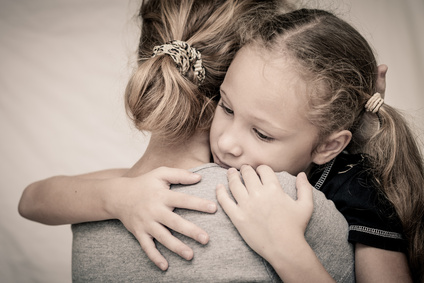
Anxiety is a difficult condition. Not only for the person who is experiencing the irrational fears, indecisiveness, dependency, and insecurity; but also for those family members who live with and care for that person. Whether that person is your partner, parent, sibling, or child at times, it can be a struggle to feel compassion.
Anxiety has a negative impact on the whole family. It is a frustrating condition to make sense of and you may wonder why it is such a confusing condition to understand. That is because anxiety does not make sense. By its very nature it is irrational. If it were rational, it would not exist.
As a parent, you may feel angry, upset, and frustrated with your child and the problems that anxiety causes for everyone. You may know that life’s challenges can be overcome, but your child may be paralyzed with incredibly uncomfortable feelings that they truly don’t believe they can get past.
It is hard to be patient when your child is freaking out about going to school and you are trying to get ready for work, or when they refuse to go somewhere or do something based on an exaggerated sense of danger.
It is hard to be in the position as a parent to think you may have to limit or restrict your activities because of your child’s anxiety and that situation will probably make you angry and upset.
Your child is also probably aware and likely feels guilty for problems that they are causing the family.
So what is the answer? Do you give into anxiety and let it dictate your life. No way!The good news is that as adults we can control how we react to our children and instead choose to respond in a way that will be compassionate and caring rather than angry or shaming.
Here are some suggestions on how respond more compassionately:
1. Always remember your child is doing his or her best and is not intending to cause problems.
2. Do not communicate to your child that they are weak, crazy, or irrational. That is incorrect. Know that your child is very strong, especially to be dealing with anxiety.
3. Instill hope that despite the discomfort they are feeling, you are optimistic things will get better.
4. Make a plan to fight the anxiety, not your child.
5. Ask what you can do to help (while not giving into avoidance or repetitive checking).
6. Stay calm yourself and learn how to be a good role model for managing difficult, big emotions.
7. Seek help if you feel the problem is getting too big.
8. Remember that the degree of the annoyance you feel at the anxiety is only a small portion compared to what your child is experiencing.
9. Make a plan to face this together. With your support, love, and compassion your child will get better.
If you would like to schedule a free consultation to learn more about Cognitive Behavioral Therapy for children, click on “Book Online Now” to schedule an initial phone consulation.






Follow me...